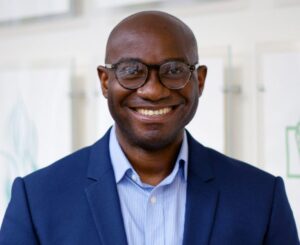
Readings:
Reading I: Isaiah 7:10-14
Psalm 24:1-2, 3-4, 5-6
Reading II: Romans 1:1-7
Gospel: Matthew 1:18-24
The countdown to Christmas has entered its final week, and since the beginning of this season of waiting, expectation, giving gifts, and receiving gratitude, you may have seen a Salvation Army Bell-Ringer at the corner of your favorite stores. Many people have given to their favorite charities, and others are preparing to do so in the coming days, spreading Christmas cheer. Already, the Christmas trees at our homes are decorated with gifts as the excitement grows, that we might finally receive our favorite gifts this year from our loved ones. Indeed, our experience of giving and receiving gifts reflects the spirit of the season.
In the First Reading, God asks king Ahaz to make a request of a grandiose nature, because God is far more disposed to benefit us beyond the limit of our human ability, to know our needs and make our request. Ahaz declined to ask, perhaps because of a human inability to identify need. The Psalmist admits to God’s unbounded knowledge and discernment of human need (Ps 139:1-3), to the result that God offers humanity the greatest of gifts: Namely, God-self, present among us, Emmanuel (Isaiah 7:14; Matt 1:23). It is an extraordinary birth of divine presence, bringing renewal to the human family towards our original state of unity with God. The Gospel of John identifies this gift of divine presence among us as God choosing to make his dwelling with humanity (John 1:14). Therefore, by relating with us, and taking on our human nature, God displays compassion and vulnerability for our sake. Let us remember that this extraordinary gift of divine indwelling among us is for the purpose of service (Phil 2:7).
In the Second Reading, notice that the same disposition to service with which we identify God’s habitation among us is what St. Paul uses to identify his understanding of his calling to proclaim the gospel of God in the world (Rom 1:5). Then, just as God gives himself to us through the presence of Jesus Christ to serve humanity’s needs, likewise St. Paul, in a total show of gratitude, gives himself in service of Jesus Christ, proclaiming the good news of God’s presence among us for the sake of renewal and transformation of the human condition towards a life with God.
St. Paul names the presence of God among us through Jesus Christ as the beginning of grace: that experience of God’s gratuitous gift of divine favor to us, unconditionally bestowed because the initiative to favor humankind comes essentially from God (Rom 1:5, See Eph 2:8). In these unique circumstances, therefore, king Ahaz, St. Paul. and St. Joseph received divine grace. Regardless of human limitations, they cooperate with God, allowing the gift which had been granted to them to bring transformation in their lives and, through them, in the world. God’s gift of grace reassured king Ahaz and the whole of Judah during a time of troubling military invasion. Receiving God’s grace, the king embodies God’s reassuring presence to Judeans. St. Joseph opens himself to the presence of God’s grace and cooperates with God for the salvation of the world. On his part, St. Paul identifies his experience of God’s gift of divine favor through Jesus Christ as an invitation to service of the gift of the presence of God in Jesus Christ. Onwards, St. Paul shares this gift of God’s presence through Jesus Christ in his ministry to the gentiles.
Next Sunday, we celebrate and renew our faith in the gift of God’s presence in the incarnation of Jesus Christ, and in doing so, we share in the spirit of the season by giving and receiving gifts with our loved ones, and with one another. But I invite you to think beyond the traditional routine of wrapped gifts under the Christmas tree, but rather to discern the impactful gift that your loved ones and the world are in dire need from you today. For our loved ones, trust is ebbing dangerous in our homes and society, affecting our respect and dignity for one another. Rebuilding a culture of trust can go a long way to repair fragile and damaged relationships. For our world, let us remember that every region has experienced a record climate disaster or the other. Time has come to give our world the gift of doing whatever we can to contribute to cutting down our carbon footprints. During this season of giving and receiving gifts, give the gift that is impactful and transformational to one another and to the world.
This reflection was originally written for US Catholic. To view the video of Fr. Okorie preaching this reflection, CLICK HERE.